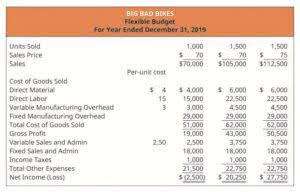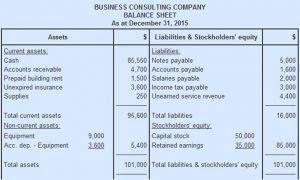
Jay of Zig Zag trading wants to work out the NCF of his company for the month. Remember, the result can help you gauge if a business is on solid footing or if they may need to reassess their cash management strategies. Financial activities include all business undertakings related to bonds, shares or dividends.

How Can Net Cash Flow Influence Business Strategy and Investment Choices?
- Through understanding, analysis, and prediction of your cash flow, you’ll unlock the ability to make informed decisions of when to spend, when to save, and when to borrow.
- You must have heard the adage that circulates the world of finance…… Cash is King!
- You’ll want to view net cash flow trends over time, so you can monitor increases or decreases in available cash in order to make more informed decisions.
- Based on the net income figures alone, Company A appears to be more profitable.
- Free cash flow (FCF) is the amount of cash generated from your core business activities minus capital expenditures (long-term fixed assets) such as equipment, software, machinery, or real estate.
One key takeaway for financial managers is the importance of flexibility in cash management. Using different depreciation methods, such as straight-line or declining balance, can affect depreciation expense and, in turn, the company’s financial statements Accounts Receivable Outsourcing under GAAP reporting standards. Similarly, businesses should consider unlevered free cash flow (UFCF) to gauge their ability to generate cash before accounting for financial obligations. By analyzing government data, investing calculations, and marketplace trends, companies can make informed decisions about CapEx and debt financing. For example, you might think a negative net cash flow points to danger for your business.

How to Calculate Net Cash Flow: A Step-By-Step Guide
Discounts offered to suppliers, dividend payments, and tax liabilities all impact liquidity. For investors and stakeholders, a company’s ability to maintain positive net cash flow indicates strong financial health and sustainability in the long run. For businesses, maintaining a positive NCF is essential for long-term viability. Fluctuations in cash flow can arise from various factors, including changes in liabilities, capital expenditures (CapEx), and business acquisitions. Companies engaged in mergers or acquisitions must carefully manage cash equivalents and debt repayments to avoid financial strain. Moreover, shareholder dividends and payroll expenses can impact cash availability, making it necessary to forecast cash flows accurately.
- Net cash flow is a profitability measurement that represents the dollars produced (or) lost during a period by calculating the difference between cash inflows from outflows.
- This multitiered approach to financial analysis allows you to validate the cash flow data and uncover deeper insights.
- Profit, in contrast, is the amount of money that remains from your sales revenue after all expenses have been subtracted.
- Savvy interpretation requires an understanding of the business’s unique situation and sector trends.
- It is a key measure of a company’s financial health and its ability to generate cash from its primary activities.
- Conversely, companies with long-term low or negative cash flows are financially weak or even on the verge of bankruptcy.
What is free cash flow?
This guide will give you an in-depth understanding of net cash flow and how to calculate it using the net cash flow formula. At the end of the day, all companies must eventually become cash flow positive to sustain their operations into the foreseeable future. All financial aid funds, except Work-Study, are applied directly to the student’s New College account, established through the Finance Office. The NCF account consists of all educational fees, room and board, and any other school charges.
Integration with Other Financial Metrics for Full-Spectrum Assessment
NCF includes all the components of a business’s cash inflows and outflows, such as operating cash, capital investment, and financing activities. Net cash flow from investing activities refers to the cash generated or spent on activities related to acquiring and disposing of long-term assets, investments, and securities. It reflects how much cash the company has paid or received on its investments during a particular period. The concept of net cash flow is rooted in the fundamental principle that cash is the lifeblood of any business. While profitability is essential, a company’s ability to generate positive cash flow is equally, if not more, crucial for its survival and growth.

Cash Flow Statement (CFS) Assumptions
- A plant can be out of service or operating at reduced output for part of the time due to equipment failures or routine maintenance.
- This comprehensive view allows businesses to understand their liquidity position.
- For businesses, maintaining a positive NCF is essential for long-term viability.
- But over time, your business should be able to recover and get back to a positive cash flow.
In turn, this will allow you to identify issues early on before they develop into bigger issues, and plan ahead if you know a cash flow change is coming. When you see a negative cash flow, that means more money is going out of your business than it is going in. Your investments didn’t do so well, but the CFO and CFF balance it out and bring you to a positive net cash flow (yay!).

What Is the Difference Between Net Cash Flow and Free Cash Flow?
Its capacity factor is the amount of smoothies made in both months compared to how many smoothies could have been made if the blender operated all the time. On the other hand, a business with a strong positive net cash flow can survive despite not making a profit. Net income encompasses everything and comprehensively reflects your business’ profitability – it’s the figure used to calculate a publicly traded company’s earnings per share (EPS).
Understanding And Interpreting Net Cash Flow

Calculate net cash flow for a valuable metric to track your company’s trial balance financial health. However, NCF only gives an overall picture and needs to provide more information on how your investing activities might generate success in the long term. It also does not consider non-cash expenses such as depreciation or amortisation. Short-term factors such as seasonality or economic changes can also affect net cash flow. NCF gives a business owner and potential investors insight into the financial health of a business.
Capacity Factor of a Power Plant
Your current net cash flow won’t show the full health of your business if you don’t add the relevant context. If there’s one calculation you should regularly use, it’s the net cash flow formula. Knowing your ncf formula cash flow (the movement of money in and out of your business) can be the difference between making a profit and going out of business (…eep!). Real estate investors compile a pro forma analysis to understand the potential cash flow an investment will generate. However, a surprising number of buyers rely on the seller’s pro forma statement when deciding whether or not to invest. That’s why it’s important to pay close attention to net cash flow, and to understand how using the wrong net cash flow amount can affect other financial calculations used to value rental real estate.











